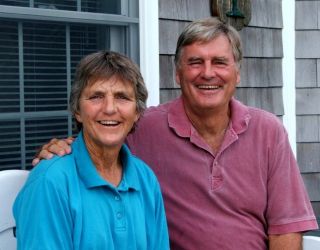Politics
How Not to Let Politics Ruin Your Family Dinner
Three powerful steps to create greater harmony.
Posted November 1, 2023 Reviewed by Lybi Ma
Key points
- Our country has become painfully polarized, leading to greater suspicion, loneliness, and isolation.
- We can begin relating to others with different beliefs by first recognizing and relieving our own stress.
- We then need to listen to others without judging them and reflect back what we hear.
- As we cultivate greater trust, we can share our own beliefs without being defensive.
As we head toward the fall and winter seasons in our painfully polarized country, you may be worried about potential conflicts. If you’re hosting a dinner with right-wing Uncle Fred, your liberal niece Suzy, and all the relatives in between, how can you promote greater harmony?
In the past few years, we have become increasingly disconnected from one another, leading to political polarization, loneliness, and isolation (Murthy, 2023). Yet one person, one thoughtful conversation, can break through the barriers of suspicion and defensiveness to begin building bridges of greater understanding. Research by psychologist Barbara Fredrickson, Ph.D., has found that even brief positive connections with friends and neighbors can have a positive ripple effect, spreading through entire communities (2013).

By reaching out with thoughtful conversations, political scientist and writer Rick Herrick, Ph.D., author of Moving Beyond Belief (2023a), has discovered how to overcome polarization in his own life. When he and his wife, Lyn, lifelong Democrats, moved into a 55+ community in South Carolina, their new neighbors were right-wing Trump supporters. Rick and Lyn began inviting their neighbors over to get to know them. “We have befriended them and listened to them and they know where we stand,” Rick says. Their conversations created greater trust and connection. “My neighbor next door is just a lovely lady,” he says. “She's an evangelical Christian and very conservative politically. And we've become friends.
She came over one day, saying she was going to a shooting practice, and invited me to join her.
I said, ‘Well, listen, Gail, that's a nice offer, but I've never owned a gun, and I've never fired one in my life.’
he said, ‘Oh, you're kidding.’
I said, ‘No.’ And then she smiled at me really, quite deeply and said, ‘Well, listen, you're my buddy, and I'll protect you’” (2023b).
“All the little things we do have consequences,” as Rick explains. And each of us can make a difference. This year, we can reach out to connect with people who have different views.
When empathy shuts down
“There’s a natural empathy between humans, but you have to be face-to-face,” Rick Herrick points out. In the past few years, Covid restrictions have decreased our face-to-face interactions and greatly increased our stress. Neuroscientist Joseph LeDoux, Ph.D., (1996) has found that the fight, flight, or freeze stress reaction shuts down our empathy, our ability to understand others. As Rick explains, when we’re filled with stress and insecurity, we cannot act toward our neighbors in a loving way. We build walls of protection instead of bridges.
We’ve become further divided by our technology, as online communications and social media have reduced personal interactions to impersonal clicks and texts. My university used to be a community where we all knew each other. Faculty members and administrators would see each other walking across campus and solve small problems before they got too big. Then we got email, and convenience undermined community. People in my department began emailing each other instead of walking down the hall to talk to a colleague.
We can begin restoring our sense of community by looking for the human face and feelings beneath our differences. Rick Herrick points out that many conservatives feel attacked for their religious beliefs and too many blue-collar workers feel resentful because they’ve lost secure jobs and incomes. Many of us have been feeling suspicious and defensive—but we are not enemies. We can find common ground but we first need to listen to each other.
We can begin with three steps:
- Before we can understand others, we need to get ourselves into a more balanced state. This often means recognizing when we’re feeling stressed and practicing stress management. When we feel our body tense up and our hearts begin racing, we can take a few deep mindful breaths and release them. Mindful breathing is part of the compassion-building practice at the Stanford Center for Compassion and Altruism Research and Education. Their research has shown that we can’t feel compassion for someone else if we’re feeling stressed and defensive ourselves.
- We need to listen, really listen, to others without judging them. Psychologist Carl Rogers, Ph.D., practiced active listening, reflecting back words and feelings of his clients to show them he understood (1961). You can practice this yourself, saying: “It sounds like you’re frustrated with__.” “You seem angry about__. Can you tell me more?”
- When you feel a developing sense of trust, you can respectfully share your own beliefs. Be honest, not defensive. You could say, “I see it differently. I feel__.” Circle back to acknowledge the other person’s point of view.
During this season, I invite you to begin rebuilding community one thoughtful conversation at a time. Together, we can make a difference.
________________
This post is for informational purposes and should not substitute for psychotherapy with a qualified professional.
© 2023 Diane Dreher, All Rights Reserved.
References
Braver Angels, a citizens group devoted to healing the political polarization in our country, https://braverangels.org. Their website offers workshops, webinars, and communication tips for building brides of greater understanding.
Center for Compassion and Altruism Research and Education (CCARE) at Stanford University. https://ccare.stanford.edu/.This site offers a wealth of research and information.
Fredrickson, B. (2013). Love 2.0: How our supreme emotion affects everything we feel, think, do, and become. New York, NY: Hudson Street Press.
Herrick, R. (2023a). Moving beyond belief: A new focus for the Christian faith. Eugene, OR: Wipf & Stock.
Herrick, R. (2023b, Sept 20). Personal communication. All quotes and information from Rick Herrick are from this source.
LeDoux, J. (1996). The emotional brain. New York, NY: Simon & Schuster.
Murthy, V. H. (2023). Our epidemic of loneliness and isolation: The U.S. Surgeon General’s advisory on the healing effects of social connection and community. https://www.hhs.gov/sites/default/files/surgeon-general-social-connection-advisory.pdf


